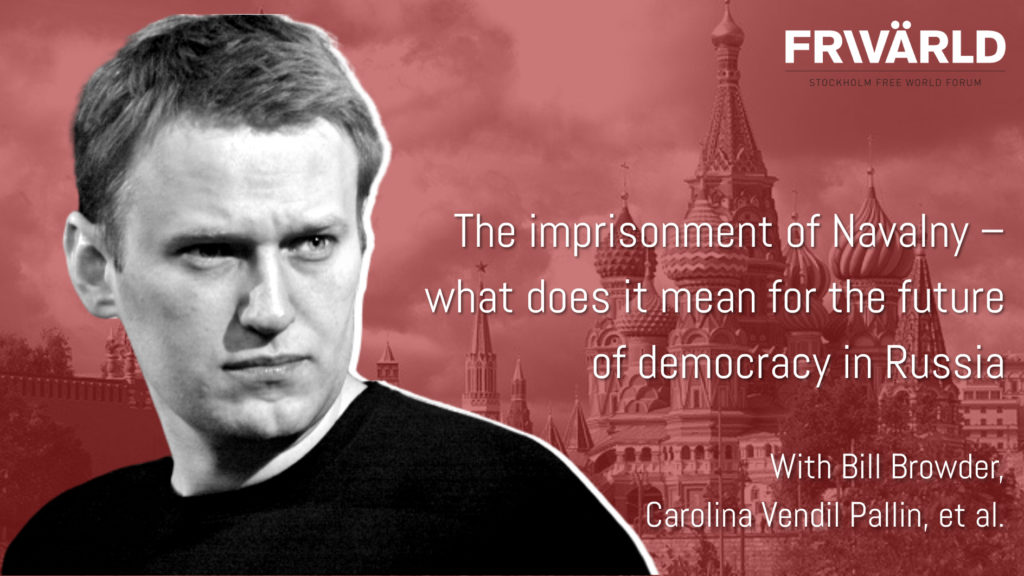Russia’s leading opposition figure made a dramatic return to Moscow on Sunday, after being almost killed in a nerve agent attack in August last year. Upon his arrival, Alexei Navalny was immediately arrested, which has sparked outrage among western leaders. To discuss the latest events in Russia, SFWF hosted a digital panel with guest experts Bill Browder, Head of the Global Magnitsky Campaign, and Carolina Vendil Pallin, Deputy Research Director at FOI.
– Putin has been backed into a corner, says Bill Browder.
Click here to watch the full discussion with SFWF:s digital panel.
On a flight in Siberia last year, the outspoken Putin critic Alexei Navalny suddenly fell ill. It was later revealed that he had been poisoned with the nerve agent Novichok, and several reports suggest that the Kremlin was behind the attack that almost took his life.
– Make no mistake, the poisoning was an act of desperation and not an act of confidence. They intended to kill him and all the evidence that have emerged since then shows that. But like many things that the Russian government do, they do badly and incompetently, says Bill Browder, Head of the Global Magnitsky Campaign, in the SFWF:s digital panel.
Alexei Navalny was later brought to Berlin for medical treatment. And last week, despite the risk of arrest and ultimately his life, he decided to return back to Russia.
– Any rational person would have stayed out of harms way. But Alexei Navalny is not a rational person, he is a true leader and a hero. A generational figure, like Nelson Mandela. He did something that Putin never expected. He wasn’t afraid of poisoning, wasn’t afraid of arrest and went back to Moscow, says Bill Browder.
This has put president Vladimir Putin in a “terrible situation”, according to Bill Browder.
– Putin has been backed into a corner. He can’t look weak, because if he does look weak, everyone will come after him. Russia is lika a prison yard, any sign of weakness is the end.
Carolina Vendil Pallin, Deputy Research Director at FOI, describes how the arrest is a sign of Navalnys growing importance in Russian politics.
– The fact that the Kremlin appears to be ready to pay a very high prize, when it comes to Russia’s relations with the outside world in order to silence Navalny, suggest to me that the Kremlin indeed sees him as a threat, whatever they may say.
Many western leaders have urged Russia to release Navalny, but how far are they willing to go? And what does the recent events mean for western-Russian relations?
– On the international arena, I don’t think Navalnys arrest actually does very much to make the situation more difficult for Russia than it already is. It hit rock bottom in August-September, and I see very little in terms of that situation changing.
– I think it will also push Russia in to China’s arms, says Carolina Vendil Pallin.
Bill Browder suggest that sanctions should be a reaction to the arrest, that targets the “oligarchs that fund Putin and keep him in power”. In addition, stopping the Nord Stream project should be considered, according to Browder.
– You need to do something that will punish Putin, and not Russia.
Click here to watch the full discussion with SFWF:s digital panel.
Participants:
Bill Browder, Head of the Global Magnitsky Campaign.
Carolina Vendil Pallin, Deputy Research Director at FOI.
Gunnar Hökmark, Chairman of SFWF.
Katarina Tracz, Director of SFWF.
